A Family Haggadah Links the Exodus with the Holocaust
- Details
- Written by: Joanne Wallenstein
- Hits: 8297
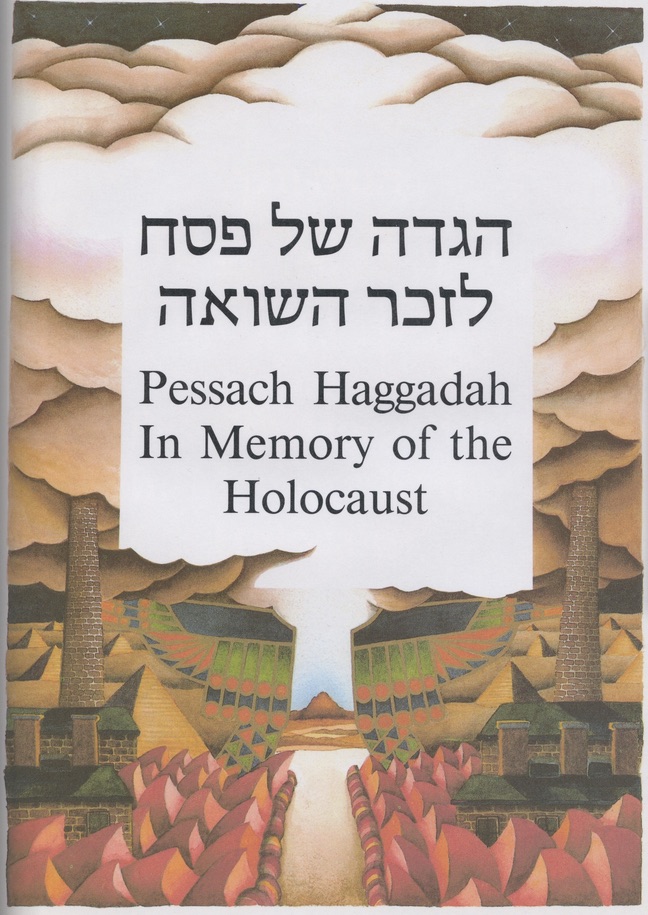 Why will this Passover be different from all other Passovers for three generations of the Wolloch family? This year, Michael Wolloch, the son of Holocaust survivors Helene and Zygfryd Wolloch, will share a unique family treasure in an exhibit at Temple Israel Center in White Plains. The Wolloch Haggadah, originally published in 1984, will be the subject of a show at the temple from April 17 – May 5, to commemorate Passover, the exodus of the Jewish people from Egypt and the parallel story of the emergence of the Wolloch family from war-torn Poland, concentration camps and the Nazis.
Why will this Passover be different from all other Passovers for three generations of the Wolloch family? This year, Michael Wolloch, the son of Holocaust survivors Helene and Zygfryd Wolloch, will share a unique family treasure in an exhibit at Temple Israel Center in White Plains. The Wolloch Haggadah, originally published in 1984, will be the subject of a show at the temple from April 17 – May 5, to commemorate Passover, the exodus of the Jewish people from Egypt and the parallel story of the emergence of the Wolloch family from war-torn Poland, concentration camps and the Nazis.
Growing up in Fox Meadow, Michael Wolloch knew that he and his three brothers were very fortunate to be living in Scarsdale. Three of his four grandparents had perished in the Holocaust, and his parents only narrowly escaped the same fate. Wolloch's parents, Helene and Zygfryd, met in Vienna where they were both trying to leave Europe and married quickly when they were reunited in New York City in 1947. From there, Zygfryd prospered in the real estate business and moved his family from NYC, to New Rochelle and ultimately to Scarsdale.
They were a family 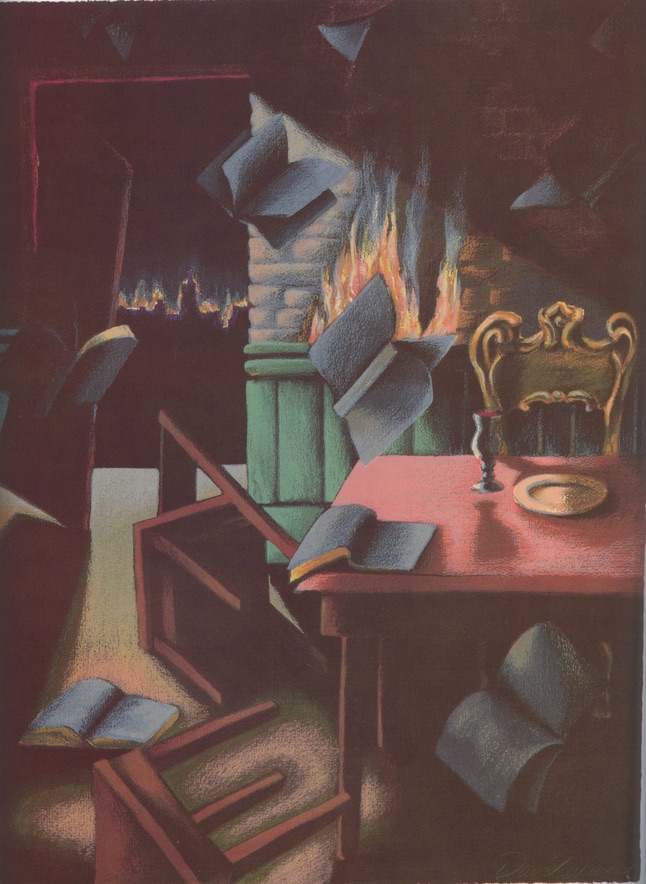 of art lovers and Wolloch built a formidable private collection over his lifetime, some of which has been donated to institutions like Montefiore and the Tel Aviv Museum. However, the Wolloch's wished to create their own legacy to honor their family members who died in the Holocaust. In 1981 they commissioned a Haggadah, and asked their cousin David Wander to do the illustrations and calligrapher Yonah Weinrib to inscribe it.
of art lovers and Wolloch built a formidable private collection over his lifetime, some of which has been donated to institutions like Montefiore and the Tel Aviv Museum. However, the Wolloch's wished to create their own legacy to honor their family members who died in the Holocaust. In 1981 they commissioned a Haggadah, and asked their cousin David Wander to do the illustrations and calligrapher Yonah Weinrib to inscribe it.
The result was a beautiful limited edition portfolio that includes 56 hand drawn silkscreens and photo lithographic images that bridge the traditional Passover story with the events of the Holocaust. The illustrations juxtapose the Star of David against the yellow stars that the Nazis required Jews to wear. The Red Sea is swimming with drowning Egyptians and swastikas and another page with text about the ten plagues is illustrated with the burning smokestack at a concentration camp.
Only 290 of the oversized portfolios with numbered color prints were produced. Nine were given to the artists, 31 distributed to the family and others were donated to major libraries and religious institutions. A copy now sits in the Rare Book, Manuscript and Special Collection Library at Duke University and another at the White House. Some are still available for sale, and the proceeds from those sales will go to Temple Israel.
 The Wolloch Haggadah was also printed in book form in English and in German, so that families can use them to lead their own Seders.
The Wolloch Haggadah was also printed in book form in English and in German, so that families can use them to lead their own Seders.
Michael Wolloch and his mother Helene Wolloch, who both live in Scarsdale today, say that the exhibit is their way of passing this Haggadah on to the next generation with the message that we should never forget. Speaking about the Haggadah and the upcoming exhibit, Wolloch says, "L'dor Vador," which means from generation to generation.
The public is invited to view the exhibit of the Haggadah at the opening on Sunday April 17, 2016 from 1-3:00 pm or see them during temple hours from April 17 – May 5.
Temple Israel Center
280 Old Mamaroneck Road
White Plains, NY 10605
(914) 948-2800 ext. 143
email: n.parkes@templeisraelcenter.org

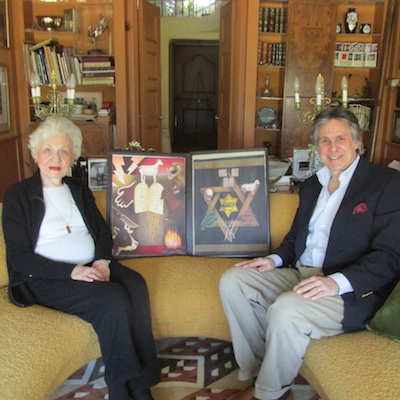
Tickets On Sale for the Scarsdale Bowl Through April 3rd
- Details
- Written by: Joanne Wallenstein
- Hits: 8084
 Tickets to the 2016 Scarsdale Bowl Dinner honoring Susie Rush will be available through April 3rd. The entire community is invited to attend this uplifting and inspirational event celebrating the spirit of volunteerism in our Village. The dinner takes place on Wednesday evening, April 13, at The Fountainhead in New Rochelle beginning at 6:30 pm. Reservations can be made online here. For additional information, please e-mail scarbowl@gmail.com.
Tickets to the 2016 Scarsdale Bowl Dinner honoring Susie Rush will be available through April 3rd. The entire community is invited to attend this uplifting and inspirational event celebrating the spirit of volunteerism in our Village. The dinner takes place on Wednesday evening, April 13, at The Fountainhead in New Rochelle beginning at 6:30 pm. Reservations can be made online here. For additional information, please e-mail scarbowl@gmail.com.
(Here is the original announcement)
Susie Rush, an extraordinary citizen with over 18 years of dedicated volunteerism to Scarsdale, will be the 2016 recipient of the Scarsdale Bowl, the community's highest award.
The Scarsdale Bowl was initiated in 1943 to recognize an individual's outstanding contributions to the civic life of Scarsdale. "We are fortunate to have so many community members give their time to our town and we have so many stars, but Susie is the supernova of volunteers," said Michelle Lichtenberg, the Chairman of the Scarsdale Bowl Committee. Rush has served on dozens of organizations and committees in Scarsdale and beyond. "Her selfless contribution of time and energy to our community, and her ability to welcome and cultivate new volunteers, epitomizes the principles symbolized by the Bowl. We are delighted to recognize her as this year's honoree," said Lichtenberg.
Rush will be honored at the Scarsdale Bowl dinner on Wednesday evening, April 13 at The Fountainhead in New Rochelle. Lichtenberg encourages all members of the community to attend and notes that the event is both uplifting and inspirational celebrating the spirit of volunteerism in our Village. Reservations can be made online at www.scarsdalefoundation.org. Scarsdale residents may also receive a written invitation by e-mailing scarbowl@gmail.com.
The Bowl Committee, a diverse group of 15 community volunteers, selects the recipient after reviewing many worthy candidates who are nominated by the community.
Last Sunday evening, the Committee voted to honor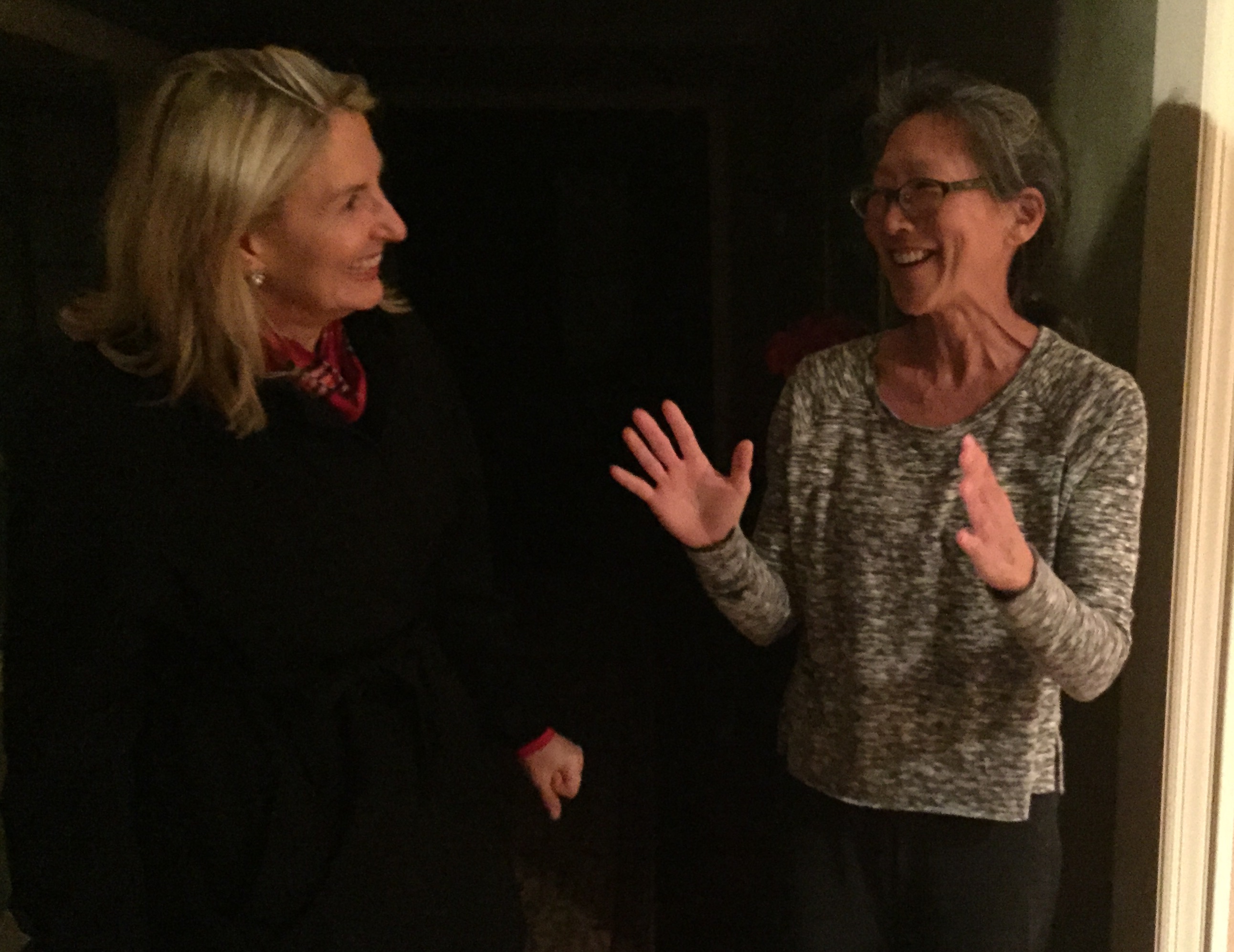 Rush. Delegates from the Bowl Committee, including Chairman Michelle Lichtenberg, Scarsdale Foundation President Evelyn Stock, Foundation Liaison Jane Veron, Foundation Secretary/Treasurer Robert Jeremiah and Committee Members Anne Lyons and Felicia Block, went to Rush's Quaker Ridge home to break the good news. It appeared that no one was home when the group arrived, so they approached the dark house, with cameras and cell phones in hand, hopeful that she was in another section of the home. As luck would have it, Rush came down stairs from watching the final minutes of the Packers vs. Redskins game. She did not seem as if she wanted to open the door, in case they were a group soliciting at such as odd hour, and when she finally recognized the group, she was too overcome to let the group in. Within a few moments, the representatives filled her entryway, but Rush momentarily hid in the shadow to recover from the shock. The always-eloquent Rush was just about able to say, "Make up a good quote!" With her hands covering most of her face she added, "I am so overwhelmed and honored. I don't even know what to say."
Rush. Delegates from the Bowl Committee, including Chairman Michelle Lichtenberg, Scarsdale Foundation President Evelyn Stock, Foundation Liaison Jane Veron, Foundation Secretary/Treasurer Robert Jeremiah and Committee Members Anne Lyons and Felicia Block, went to Rush's Quaker Ridge home to break the good news. It appeared that no one was home when the group arrived, so they approached the dark house, with cameras and cell phones in hand, hopeful that she was in another section of the home. As luck would have it, Rush came down stairs from watching the final minutes of the Packers vs. Redskins game. She did not seem as if she wanted to open the door, in case they were a group soliciting at such as odd hour, and when she finally recognized the group, she was too overcome to let the group in. Within a few moments, the representatives filled her entryway, but Rush momentarily hid in the shadow to recover from the shock. The always-eloquent Rush was just about able to say, "Make up a good quote!" With her hands covering most of her face she added, "I am so overwhelmed and honored. I don't even know what to say."
Rush has a long distinguished record of volunteer service to Scarsdale and the outside community. Currently she is the Treasurer and Trustee of the Scarsdale Foundation, and a member of the Scarsdale Coalition on Family Violence, the board of the Scarsdale Task Force on Drugs and Alcohol, and the Advisory Board of Scarsdale Edgemont Family Counseling Service.
She also currently serves as a moderator of the League of Women Voters of Westchester. From 2013 to 2015, Rush was President of the League of Women of Scarsdale, and an active part of their board for eleven years. One LWVS member told a Bowl Committee member, "...even though she is no longer President of the LWVS, she is still the bright light behind the scenes that makes our community the special place it is."
Among her long list of past civic activities, Rush was Quaker Ridge PTA President and President of the Scarsdale PT Council. She was an active member of the Scarsdale High School PTA Scholarship Fund for College, chairing the group. Her commitment to the Scarsdale school system continued as part of the Scarsdale School Board Nominating Committee, where she also acted as chair.
In her work with Scarsdale schools, as with all her volunteer posts, Rush is described as intelligent, creative, hard working, and courageous. During her term as PT Council President, Anne Lyons recalled, "...she advocated for the Quaker Ridge bond when it was discovered that there was beach sand in the foundation. This was controversial...[but] Susie did her research and, many feel, acted in the best interest of the community."
Rush has served on numerous boards and committees throughout Scarsdale and beyond including, but not limited to Kids' B.A.S.E. and The Little School, Scarsdale Teen Center Adult Board, STEP Board, the Scarsdale Forum, the League of Women Voters of Westchester, and the Scarsdale Teachers Institute Policy Board. As Jane Veron noted, "Susie does it all. She sets the highest standards for herself and takes on the most challenging, important, and demanding jobs. She pours every ounce of herself into her community work... Susie is the gold standard in both analytics and the written world. She works tirelessly and cares deeply about Scarsdale."
Rush received her B.A. cum laude from Smith College and a J.D. from the University of Pennsylvania Law School, where she was the recipient of the David Werner Amram Prize. She is currently a Legislative Analyst in the office of New York State Assemblywoman Amy Paulin. Previously, she was a partner with Lowenthal, Landau, Fischer & Ziegler, P.C., where she practiced corporate and securities law in New York City, and served as General Counsel to Datalogix, Inc. in Valhalla, New York.
Rush's greatest joy is her family. She lives with her husband of 27 years, Andy, and has two sons, David, in his third year of a Ph.D. program at Massachusetts Institute of Technology, and Jonathan, a junior at Yale University.
Please join the Bowl Committee on April 13th at The Fountainhead to honor Scarsdale's spirit of volunteerism and Susie Rush.
Scrubs, Scarsdale Style
- Details
- Written by: Carly Glickenhaus
- Hits: 5524
 On a typical Wednesday night, when my senior friends were curled up watching Netflix to escape the pressure of the last few months of high school, I never expected to find myself wrapping my hands around a human colon in the pathology lab at White Plains Hospital.
On a typical Wednesday night, when my senior friends were curled up watching Netflix to escape the pressure of the last few months of high school, I never expected to find myself wrapping my hands around a human colon in the pathology lab at White Plains Hospital.
The White Plains Hospital High School Clinical Tutorial program provides twelve juniors and seniors with exposure to sixteen specialties of medicine over six months. Each week's two-hour session includes a lecture and discussion as well a hands-on experience. The twelve students, who come from Scarsdale, White Plains, Byram Hills, and Harrison, were selected by their schools' science departments to participate in this unique program. Many of the students already know they would like to pursue medicine as a career, and each shared their interests on the first day.
Endocrine Surgeon Dr. Kaare Weber, who organized the program, was impressed by the group's ambition. Some students had already decided which specialty they wanted to pursue. Surrounded by hopeful neurosurgeons and gastrological oncologists, I was one of the few who may not want to go to medical school at all. By exploring a range of subspecialties from trauma to microbiology, the program appealed to my own interests in public health and biotechnology, serving my future aspirations in the field of national security. Regardless of each student's distinct interests, the program has been an opportunity to begin considering the lifestyles that would make us happy, and the kinds of livelihoods found in science, research, and medicine. Each guest speaker has made clear that there is no one path best fit the students' visions for their future. These are an important conversations to have as a high school senior, and ones that do not take place often enough in our schools.
Flipping through a college course catalog leaves many ambitious college freshmen feeling like kids in a candy store, not knowing where to begin. The WPH program offers high school students the exposure that will be necessary to make informed decisions as they begin to navigate their career paths on a college campus, giving students experience to rely on while considering the multitude of choices before them.
After the first lecture on anesthesia, students looked at their carotid arteries on an UltraSound and passed around a series of daunting needles. To truly understand the current practices in surgery, we visited the operating room. Feeling like Meredith Grey as I slipped into scrubs, I couldn't believe I was lucky enough to see the inside of an OR, fortunately not as a patient, but as a curious student of science. Inside, students took turns testing laparoscopic surgery instruments out on a real patient on the operating table: a Mr. Potato Head stuffed with gummy worms and skittles to represent target organs.
Having read about the famous minimally invasive surgery daVinci robot during weekly nerdy indulgences in the Science Times, I never expected to have the chance to use one as a seventeen-year-old. Students had a chance to complete a simulation on the machine and compete against each other for the best score. Scoring 52%, I would have had a steep malpractice claim.
At some time or another, every high school student has felt burdened by "busy work" or has lost interest in a subject that is, to some, "useless in real life." Whether students are unmotivated and passive, or energetic and driven, programs like this promote appreciation for coursework. In Scarsdale's push for new, alternative forms of teaching, each SHS student should be offered the opportunity to learn outside the classroom. In my view, SHS should continue to seek out hands-on programs to help students of all academic interests find something that inspires and excites them.
Carly Glickenhaus is a senior at Scarsdale High School.
Julius Reich Arraigned in Westchester County Court
- Details
- Written by: Joanne Wallenstein
- Hits: 7622
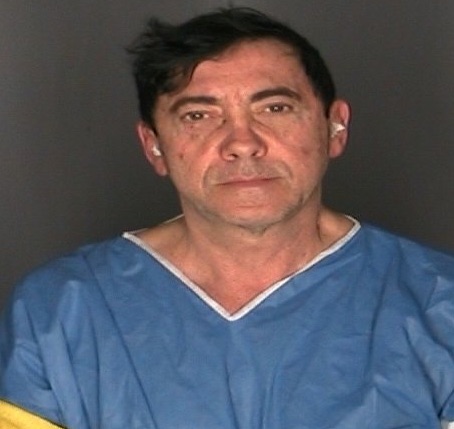 Acting Westchester County District Attorney James A. McCarty announced on Tuesday March 8 that Julius Reich age 62 of 50 Lincoln Road in Scarsdale has been arraigned on an indictment charging him with:
Acting Westchester County District Attorney James A. McCarty announced on Tuesday March 8 that Julius Reich age 62 of 50 Lincoln Road in Scarsdale has been arraigned on an indictment charging him with:
• one count of Murder in the Second Degree, a class "A-1" Felony,
• one count of Criminal Possession of a Weapon in the Fourth Degree, a class "A" Misdemeanor
in the death of Robin Goldman, M.D.
"In what can only be described as an ambush, the defendant, as alleged in the indictment, entered the bathroom while his wife was showering and repeatedly stabbed her to death. The two were in the process of divorcing but remained living in the same residence," said Acting District Attorney McCarty.
On January 20, 2016 between 8:00 am and 10:10 am the defendant entered the upstairs bathroom of the home while the victim was taking a shower.
Using an 8-inch kitchen knife, Reich stabbed the victim 22 times resulting in wounds to the hands, chest, abdomen and back. She suffered punctures to her lung, heart, diaphragm, liver and kidney. She died at the scene.
At the conclusion of the attack, the defendant went downstairs. Sometime later he called 911. Responding Scarsdale Police officers discovered the victim's body. The defendant was placed under arrest."
Reich appeared in court with his attorney John Pappalardo on March 8 and pleaded not guilty to the charges. He also signed a series of protective orders. He remains in jail.
His next court appearance will be on April 5th, 2016.
He faces an indeterminate term of imprisonment, a maximum of which is 25 years to life in state prison.
Pointing Fingers
- Details
- Written by: Joanne Wallenstein
- Hits: 6709
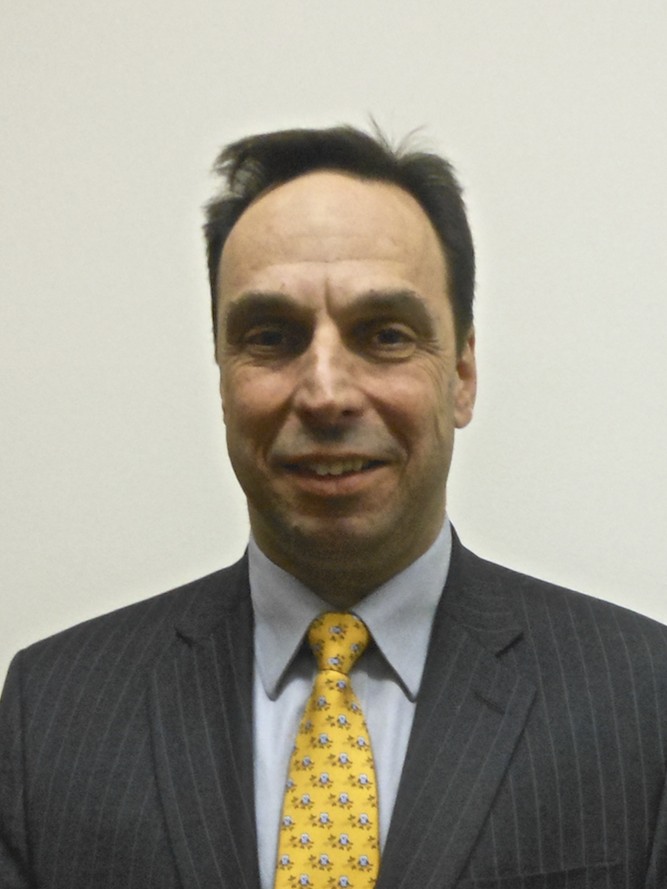 (This is an editorial from Scarsdale10583 site founder Joanne Wallenstein) In charging Trustee Carl Finger with an "appearance of a conflict of interest," Robert Berg continues a pattern of charging local officials with whom he disagrees on policy issues with unethical behavior, possibly in order to embarrass them.
(This is an editorial from Scarsdale10583 site founder Joanne Wallenstein) In charging Trustee Carl Finger with an "appearance of a conflict of interest," Robert Berg continues a pattern of charging local officials with whom he disagrees on policy issues with unethical behavior, possibly in order to embarrass them.
Berg waged a long battle to undermine Scarsdale Schools Superintendent Michael McGill when Berg believed that school budgets were unnecessarily high. At school board meetings he took McGill on, in a way that made many uncomfortable, while his colleagues from the Scarsdale Forum charged the district with misleading and misrepresenting the public about a health insurance reserve fund, saying this "may constitute securities fraud," and called for McGill's resignation. Citing "the organized effort to displace him from his position," Dr. McGill decided to retire a year early.
Now Berg is not pleased with the decision by the Village Board of Trustees to follow its own precedent in 2014 and again turn down the Homestead Act, which would have doubled real estate taxes for Christie Place condo owners – and reduced the tax bill for Scarsdale's single-family homeowners by about $99 per household. As President of the Scarsdale Forum, Berg authored a report recommending the adoption of Homestead in 2014, and also signed the report in 2016.
Though the intent of the Homestead Act was to balance the tax burden between commercial and residential properties following a revaluation, advocates for the adoption in Scarsdale were using it to shift the tax burden from single-family home owners to condo owners – which was not the intent of the law. Based on their understanding of such intent, two separate groups of Trustees have rejected the Homestead Act.
However, rather than accept defeat, Berg again had 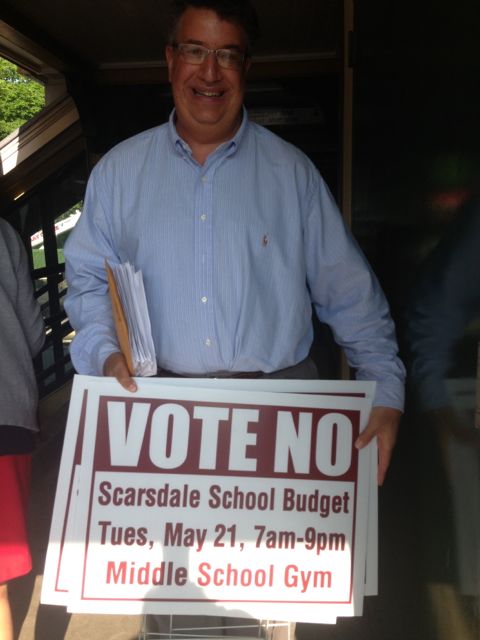 decided to play the ethics card and charge one of the trustees with unethical behavior. Since Trustee Carl Finger is a real estate attorney who represents, among other clients, other condominiums around the county, Berg decided that Finger needed to recuse himself from the vote on Homestead. Before the vote, Trustee Finger consulted with Village Attorney Wayne Essanason who gave Trustee Finger the choice of whether or not to vote. In an Essanason's view there was no conflict of interest since Finger did not represent condos in Scarsdale.
decided to play the ethics card and charge one of the trustees with unethical behavior. Since Trustee Carl Finger is a real estate attorney who represents, among other clients, other condominiums around the county, Berg decided that Finger needed to recuse himself from the vote on Homestead. Before the vote, Trustee Finger consulted with Village Attorney Wayne Essanason who gave Trustee Finger the choice of whether or not to vote. In an Essanason's view there was no conflict of interest since Finger did not represent condos in Scarsdale.
After Finger joined six other members of the Board of Trustees and voted "no" to Homestead, Berg claimed that the decision would set a precedent for other municipalities and that Finger might represent condos in Scarsdale in the future. He said there was an "appearance of a conflict of interest" and requested that "the Village Board of Trustees direct the Village Board of Ethics to convene and review Trustee Finger's decision not to recuse himself." Berg said, "A determination from the Board of Ethics will be helpful to guide trustees' conduct in the future."
I'm no lawyer but I never heard of anyone being charged with impropriety on behalf of a client they might represent in the future. Furthermore, as the vote against Homestead was unanimous, Finger's vote did not even make a difference. You can read Robert Berg's email and the response from the Village Attorney here:
Anyone who knows Carl Finger or who has attended a Village Board meeting in the past two years can see that these charges have been trumped up to embarrass him. Finger is thoughtful, ethical, intelligent and just the kind of person we need running our Village. He is energetic, responsible and it's terrific that he takes this volunteer position so seriously. Despite Berg's complaint to the contrary, Finger's vote did not create an "appearance of impropriety," and in truth there was no impropriety at all.
Here is a copy of the email that Berg sent to Wayne Essanason on February 26:
Hi Wayne. Thanks for responding to me so quickly. I respectfully disagree with your conflict of interest analysis with respect to Trustee Finger. At a minimum, as I told the Board of Trustees and Trustee Finger, his firm's representation of many condominium clients in Westchester County raises an appearance of impropriety. Given that all other Trustees and the Mayor were present and able to participate in the deliberations and the vote, Trustee Finger's participation was not needed, and he should have recused himself, even if he was not required to do so (which I do not necessarily concede). In Scarsdale, we pride ourselves on running a good, clean government. That's why I believe the Village Board should refer this matter to the Village Board of Ethics. While Trustee Finger may not be on the Village Board at the time of the next revaluation, the issue of the circumstances under which a sitting Trustee should recuse himself/herself will undoubtedly arise again, and guidance from the Village Board of Ethics may be helpful. I appreciate the fact that Mayor Mark will present my request at the next agenda meeting. Best regards, Bob Berg.
Letters:
The following email was sent to Mayor Jon Mark from Jeffrey Johnson on Tuesday March 1:
Dr. Mayor Mark,
In reading the front page article and ensuing editorial in the February 26 issue of the Inquirer, I was very surprised to see the ethics of Carl Finger called into question by newspaper. It is one thing - and of course the paper's prerogative - to voice the views of a citizen who has seen a vote on the Homestead Tax result in a unanimous decision against his viewpoint twice in a row. It is quite another to challenge without merit the ethics of a reputable trustee and attorney on his decision not to recuse himself after seeking unbiased advice from the Village Attorney.
I have only lived in Scarsdale for two and a half years; however, in my personal dealings with Carl (mainly in coaching girls' rec basketball and softball) and knowing his ethical approach to his work, I am confident he would have recused himself if there was truly a conflict of interest. Carl's firm does not represent any condominium clients in Scarsdale, and I do not believe it is the place for the Inquirer to create an issue where there simply is not one. The only reason there is an "appearance of impropriety" is because the Inquirer chose to publish that line in their questionable editorial. As a fairly new citizen to the community, I wanted to show my support for Carl because I know how much he is putting into his position as trustee.
Sincerely,
Jeffrey Johnson
Fox Meadow
This letter was also sent in for publication:
To the editor:
At a time in our political history when many federal lawmakers view obstruction as a primary strategy for governance, our local political process has prided itself on its nonpartisan and thoughtful approach. The Inquirer's February 26th editorial, "Recusal refusal," wrongly criticizes Carl Finger for choosing to fully engage in his responsibilities as Trustee.
The issue centered on a vote on a proposed Homestead Tax Option, which would likely result in higher tax rates for commercial properties. Among many various types of clients, Finger's law firm represents condominiums in other towns and cities. Make no mistake: as the Inquirer stated, Finger's firm does not currently represent any condominiums in Scarsdale. After consulting the Village Attorney on the issue, Finger chose to fully participate in the proceedings.
The editorial acknowledges that it does not think Finger voted in the interest of his clients, which is right as he has no clients in Scarsdale who would benefit from the decision. Instead, the Inquirer's argument is predicated on the idea that he should have abstained because he might, in the future, get such a client. This is an unreasonable standard that would subject Trustees to a potentially limitless barrage of "what if" challenges under the theory that this creates the appearance of a conflict of interest.
It would have been easier for Finger to disengage from the process of governance as the Inquirer would have him do. For a Trustee they describe as someone who "asks salient questions," "contributes ideas" and is "thoughtful and considered," one would think they would be advocating the exact opposite. We want our Trustees engaged in the process of governing, not shirking from their responsibilities. This editorial only served to discourage thoughtful people from serving in this critical role in the future.
William and Barbara Langford
Boulevard
This letter was submitted by Sanford Greenberg
To: Editor and Mayor:
Recent criticism of Trustee Carl Finger's participation in the Homestead Tax vote is based on a twisted application of ethics principles. Local government involves innumerable personal and business connections between elected officials and the community they govern. We want our Village Trustees to be members of our Village, active and involved participants in our community and deeply interested in our issues. An unavoidable consequence of local government is that our Trustees are often impacted by their governing decisions. By way of example, each Trustee who owns a single family house in Scarsdale had a direct pecuniary interest in the outcome of the Homestead Tax vote. The application of conflict principles to local government requires reason and balance. We elected the Trustees because we have faith in their judgment and their skill, knowing full well that each Trustee's interests are intertwined with our Village. In the matter of Trustee Finger, the "interest" identified by one disgruntled resident (and propped up by the Scarsdale Inquirer Editorial) is hypothetical and remote - and does not constitute a conflict. Trustee Finger's law firm does not represent a condominium in Scarsdale. The assertion that Trustee Finger was impermissibly conflicted because his vote may at some future point in time have an unidentified impact on an unidentified condominium client of Trustee Finger's firm located in another unidentified town is reckless and without merit.
Sanford Greenberg
Fox Meadow






